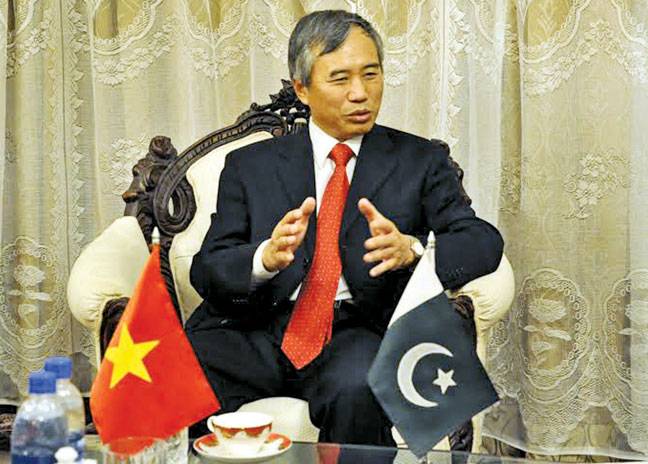islamabad - For each meal only one bowl of rice reddish brown
No vegetables, no salt, even no broth to wash it down
If you get food sent in, you may soothe your hunger,
Falling this, you‘ll finish and can only cry to Mother
These lines taken from the poem ‘Prison Meals’ which is written by none other than the poet-cum-journalist-cum-revolutionary leader, father of the nation and late President of Vietnam, Ho Chi Minh. As the world celebrates his 106th birthday today, the Vietnamese ambassador to Pakistan, Nguyen Xuan Luu, narrates the fond memories of his leader.
Born on May 19, 1890, President Ho Chi Minh is now known as Uncle Ho to the Vietnamese people. “His greatest art as a ruler was his “cultural diplomacy”. He won battles not wars, he negotiated rather than fight, he convinced his opponent with logics not force as he knew that neither his country nor his people can afford a war, the ambassador explained.
Ho Chi Minh dealt with French colonialists, American invasion, Japanese occupation and struggle for independence of South and North Vietnam and his struggle did pay off in the year 1945. It was a journey full of thorns. He travelled around the world, worked a kitchen helper on a French steamer, a baker in New York City, cook assistant on a US ship and a pastry chef in United Kingdom before returning to Vietnam in 1942. It was in 1922 that he published a newspaper Le Paria and in 1925 he founded the Vietnamese Revolutionary Youth Association, training communist cadres to lead the association and popularise Marxism-Leninism in Vietnam. It was on September 2, 1945 that Ho Chi Minh read the Declaration of Independence to establish the Democratic Republic of Vietnam. However, in 1946, he gave an appeal to raise the anti-French resistance war for the sake of national independence. After the Northern part of Vietnam was liberated in 1955, Ho Chi Minh’s started his struggle for reunify the country.
The compilation of his poetry Prison Diary speaks volumes of his ordeal in the prison cells and how it transformed his life and softened his heart. His poem ‘The Mile Stone’ is based on the long journeys that he was forced to take while being shifted from one prison cell to another, in a city far and away. However, at the same, it symbolises the struggle and the sacrifices that an individual has to make to achieve something.
The Mile Stone
Neither high up nor far away,
On neither emperor’s not king’s throne,
You‘re only a little slab of stone
Standing on the edge of highway
People ask you for guidance;
You stop them from going astray,
And tell them the distance
O’er which they must journey.
The service you render is no small one;
People will remember what you‘ve done.
Ho Chi Minh’s though never married but his poetry many a time’s emphasised on love and bounding between close net families or a romance between husband and wife. In his poem ‘Visiting Her Husband In Prison’ , he depicts and visualises the pain and agony that a family has to go through for a cause. Living away from loved ones who you care for can be very painstaking.
He writes:
On this side of the bars, the husband,
Outside stands the wife,
So close, only inches distant,
Yet as heaven from earth apart,
What their mouths cannot let know,
Their eyes try to impart.
Before a word is said, tears flow,
Truly their plight rend your heart
During 14 months of imprisonment, Ho Chi Minh was transferred to thirty different prisons. It was a journey full of miseries and anguish as at times he was cooped up in a makeshift jail near rubbish heaps, with one leg shackled or sent on his way on a lead, with hands bound behind a cart. Despite the days of 55km walk, despite sleepless nights of hunger, cold or fever, the cangues, he kept his smile which testifies to his inexhaustible confidence in life. At one place he wrote: Arms and legs bound, who can prevent you from listening to a bird’s song, from enjoying the fragrance of a flower? Do Solitude and inaction weigh heavy on you? The autumn moon is bright in the sky. Does the languor of the evening twilight stupefy your will? Look at the light in the distance. His book Prison Diary is a must read as at many places it reminds you of Faiz Ahmad Faiz’s poetry when he was in prison.
–The writer is a freelance contributor.






